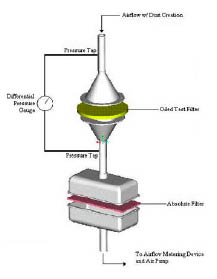Foam Filter Oil

Bel-Ray Engine Oil & Bel-Ray Gear Oil – Differences Explained
February 20, 2019
Lubrication Myth Chaps My Hide!
February 20, 2019The internals of a well operating machine consist of a myriad of metal parts moving past each other under the tightest tolerances. Foreign particles are an absolute nightmare to these parts. If the inside of an engine were to get contaminated, the debris would cause catastrophic damage when trapped in these tight tolerances. Through metal cases, seals, and gaskets, all of the insides of the engine are protected from the damaging elements of the environment in which it is used. Since air from the surrounding environment is necessary for the combustion process, the air filter acts as the ‘seal’ of the air intake. It has the important job of preventing particles contained in the air from entering the engine, even the finest dust particles that could potentially cause engine damage. What makes its job more difficult is it must do so without restricting airflow and affecting the engine performance.
Air filters for most off-road motorcycles and ATVs incorporate foam air filters. When magnified, one could see that the foam in a filter is a three-
dimensional network of polyurethane strands. As dust gets carried through the foam material, it bumps into these strands and becomes trapped while the air continues on to the engine. The foam alone works to mechanically trap particles from the air, but in order to get maximum filtration, it is necessary to use filter oil. Filter oil coats the strands of foam material and gives them a sticky, adhesive property.
Filter oil is a highly viscous oil, so viscous in fact that you can’t even pour it. When you get a bottle or can of filter oil, it contains the oil diluted with a carrier solvent. The solvent makes the oil thin enough to pour (or spray) and work evenly throughout the filter. After applying to the filter, the carrier solvent begins to evaporate leaving behind a film of the effective filter oil. The properties of this film vary greatly between brands. As you will find out shortly, not all filter oils are created equal.

There exists an industry standard for evaluating air filter performance of automobile engines. The ISO 5011/SAE J726 Standard for Performance Testing of Inlet Air Cleaning Devices is the test method used to determine several performance characteristics of air filters. In order to test foam filter oil, the Bel-Ray laboratory designed an in-house test stand based on the ISO/SAE standard. The test consists of a specified concentration of fine test dust in air being passed through a test filter. The test element in this case is foam filter material found in off-road motorcycle filters and the rate air passes through it mimics what a filter on a 450cc motorcycle would see at full throttle. As the dusty air passes through the test filter, dust particles become trapped in the foam. A differential pressure gauge is used to measure the restriction of the air filter as it becomes loaded with dust and an ultra high-efficiency filter is located immediately downstream to catch any particles that may pass through the test filter.
A description of the test is as follows:
1. All pipes, nozzles, and components are weighed to the nearest .01g
2. The foam disk is oiled with a determined amount of filter oil, it is weighed, and then clamped between the housing.
3. Absolute filter material is prepped and then clamped between the absolute filter housing.
4. The air pump is turned on and the flow is adjusted to 20 CFM, which gives the required velocities for dust suspension and flow through the filter material.
5. The pressure drop across the filter is recorded prior to dust loading.
6. Dust is created in a mixing tank and compressed air injects the dust into the inlet airstream.
7. For every increment of pressure drop as the filter is loaded, the amount of dust fed is recorded.
8. The test is run until the pressure drop change across the test filter reaches a certain level. Once this is reached, the airflow and dust injection is turned off.
9. The apparatus is disassembled and the foam filter, the absolute filter, and the components are weighed.
As the test is run, the airflow, amount of dust fed, and test element restriction are closely monitored. The test is run until the pressure drop across the test filter reaches a specified level and then all airflow and dust injection is turned off. Upon completion of the test, the apparatus is disassembled and every component is accurately weighed to account for all the dust that was introduced to it. Some important properties of filter oil performance are then assessed from this information:
Filter Effeciency
This refers to its ability to remove particles from the air stream. Efficiency is reported as a percentage of the total amount of dust that the filter was able to trap. This is determined by weighing both the test filter and the secondary high-efficiency filter to determine the amount that passed through the foam filter.
Capacity
This is the ability of the filter to ‘breathe’ while holding dirt. A filter with high capacity will be able to allow air to flow freely when it is dirty. This relates directly to the amount of horsepower a bike is able to generate as the filter is removing the dust from the air.
Loading Curves
These graphs are what probably interest most motorcycle racers. By plotting restriction (pressure increase) vs. the elapsed time, the performance curve tells the story of how each brand of oil performed throughout the test. As each minute passes throughout the testing, the dust is fed into the air stream at a steady rate, therefore each filter is getting the same amount of dust per unit of time. What is important for a high performance filter oil to do is maintain the ease of airflow as it is trapping dust from the air. The optimum curve in this case would stay close to the bottom and stretch as far to the right as possible before curving up to show air restriction.
A curve like this shows that the filter was able to have little restriction and last a long time before “plugging.” Since the line stays lower for a longer period of time, it shows that the air filter was breathing efficiently as it was catching dust.
On the other hand, a curve that quickly curves up shows poor performance. Oil like this immediately turns the captured dust into a muddy shield that blocks airflow through the filter. The sharp upward curve shows that for every additional unit of dust added, the filter quickly builds up more restriction to airflow.
The following tests were run successively under controlled laboratory conditions to show the performance of the different filter oils. For the
comparative testing, identical foam elements, air flow, and dust injection rates were used for all the tests; the only parameter being changed from test to test was the type of oil used. Since all other conditions are controlled and carefully monitored, the differences in filter performance would be due to the type of filter oil alone.
Test Results-
The efficiency and capacity of foam filters are dependent on several factors such as air flow rate, load on the filter element, and dirt particle size. The absolute values of efficiency and capacity, for any given values of the above conditions, are unique for the given set of test conditions. However, comparative results between different filter oils at a particular set of test conditions lead to a performance ranking of the products that applies over a wide range of test conditions. An overall summary of the air flow characteristics of each filter oil brand can be seen in the performance curves below:
As you can see in the graph of performance curves, Bel-Ray Foam Filter Oil maintains a low restriction as it is subjected to dust. The way it stays close to the bottom of the chart and stretches far to the right shows that it does not cause the ‘plugging’ effect as much as most of the other brands. This is especially noticeable around the 20 minute period of the test where most of the competitors have already reached the terminating pressure drop. The Bel-Ray Foam Filter Oil allows the dirty filter to flow air freely, where as the filter oils far to the left cause an immediate restriction of air after a short time of dust injection.
The capacity, as mentioned earlier, is the final rating given to the filter when the terminating pressure drop is reached. This number is equal to how far to the right the above performance curves stretched at the 1.5 inch H2O restriction mark. The following chart shows the final ranking of the filter oils for capacity.
Since the dust is fed at a constant rate, the longer the elapsed time for a product means the more dust it was able to hold before plugging off the flow to the terminating pressure drop. In real world terms, the higher the bar in the above chart, the longer your filter will operate before choking engine performance. The tallest bar on the left shows that the product was flowing air the best at the end of the test. However, by referencing the performance curves as seen earlier, this product did not exhibit superior flow characteristics until the very end of its life. The remaining products all have capacity results that basically represent their overall performance curve.
The question becomes which filter oils are trapping dirt while they are allowing this high amount of airflow. The efficiency results from the test can be overlaid on the above capacity chart.
In the summary of test results where efficiency and capacity are shown on the same chart, you can see that the Bel-Ray oil performs in the highest range of efficiency, while allowing air to flow 30% better than the next best performer in the blue-colored efficiency range (brand TB). All the products which perform similar to Bel-Ray in air flow testing are inferior at particle removal and have a lower efficiency.
Since motor oil is oftentimes used to wet filter elements, it was tested under the same conditions as all the brands of filter oils. Motor oil does increase the efficiency of the foam; however this test shows that it is less effective in both capacity and efficiency than all the brands of oil tested. It applies to the foam and leaves a wet film which causes the trapped dust to be very heavy and muddy. This resulted in poor flow characteristics, which ultimately led to the short life span of the motor oil.
Dynamometer
Testing
To quantify the performance of the Bel-Ray Foam Filter Oil in more familiar terms, dynamometer testing can show the resulting differences in horsepower. As shown by the blue color in the chart (below left), the Bel-Ray Foam Filter Oil will provide the highest level of dust filtration. When looking at the other products in the high efficiency range (>99% particle removal), their capacities are all quite a bit lower. For this dynamometer testing, we will only consider the high efficiency oils which are colored blue in the efficiency ranges chart.
When the oiled filter is first introduced to the motorcycle and it is not holding dust yet, there is no difference in air restriction between most of the filter oils and the Bel-Ray product does not yet hold a measurable advantage. However, once the filter starts trapping dust the difference is quite apparent. From the dust loading curves you can see that about halfway through the life of Bel-Ray Foam Filter Oil is when the other high efficiency air filter oils have reached their terminating pressure drop. At that point the Bel-Ray Foam Filter Oil is able to maintain a 1.1 inch H2O advantage in air restriction. This is the difference of airflow that we can replicate on a SuperFlow CycleDyn dynamometer fitted with a CRF250 test bike.
In the horsepower graphs (right) you can see that a 1.1 “H2O air intake restriction equates to a noticeable horsepower loss on a 250cc four stroke motocross bike. Almost a half horsepower is taken from the top end power which is significant on a motor of this size. This is the real-world advantage gained by using Bel-Ray Foam Filter Oil. Your motorcycle or ATV will continue to operate at its best until the filter is changed.
Conclusion
The data we have presented was collected in an accurate, scientific manner. This data shows conclusively that Bel-Ray Foam Filter Oil are designed for the highest level of performance.
When a foam filter is oiled with Bel-Ray Foam Filter Oil it will exhibit excellent flow characteristics while affording maximum protection to the engine from damaging dirt particles. As the oil is holding dirt particles removed from the air, it continues to allow the intake air to flow freely through the filter. Minimal flow restriction results in maximum engine performance. When compared with the other brands of foam filter oil, Bel-Ray Foam Filter Oil is proven to fall within the highest range of efficiency, ensuring that your motor is protected.
If you want superior airflow for maximum horsepower while getting the benefits of a high-efficiency filter oil, Bel-Ray Foam Filter Oil stands alone as the superior product.
Download PDF Version:
Foam Filter TR.pdf



